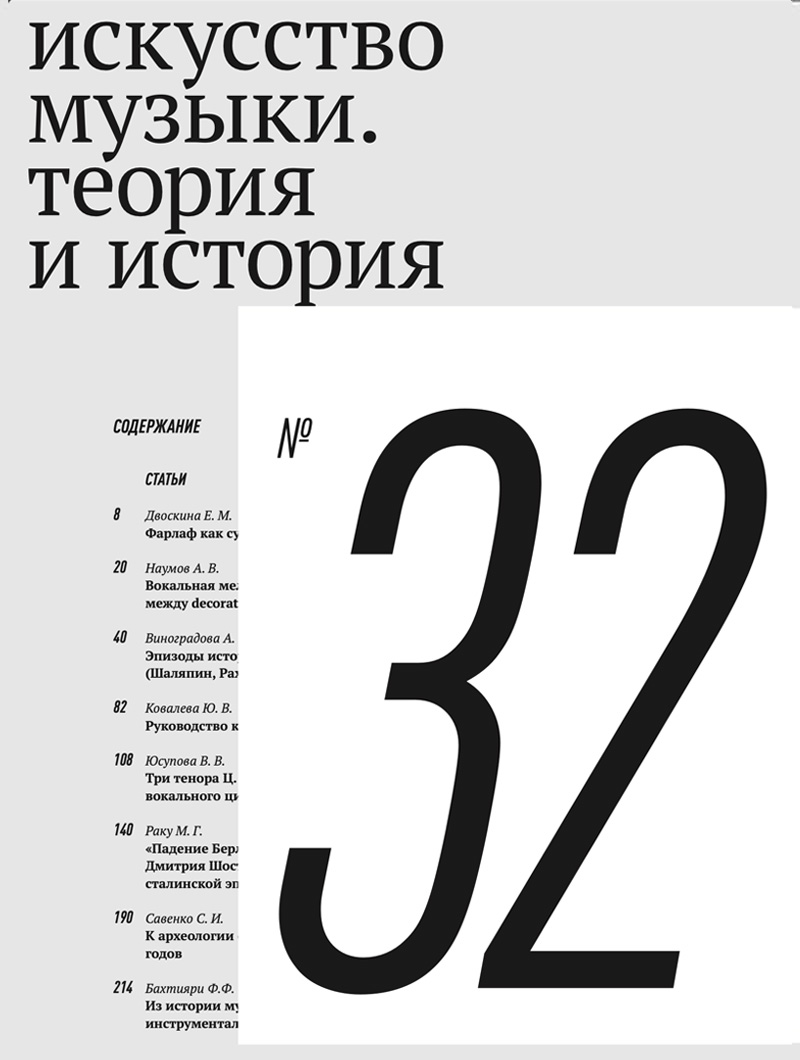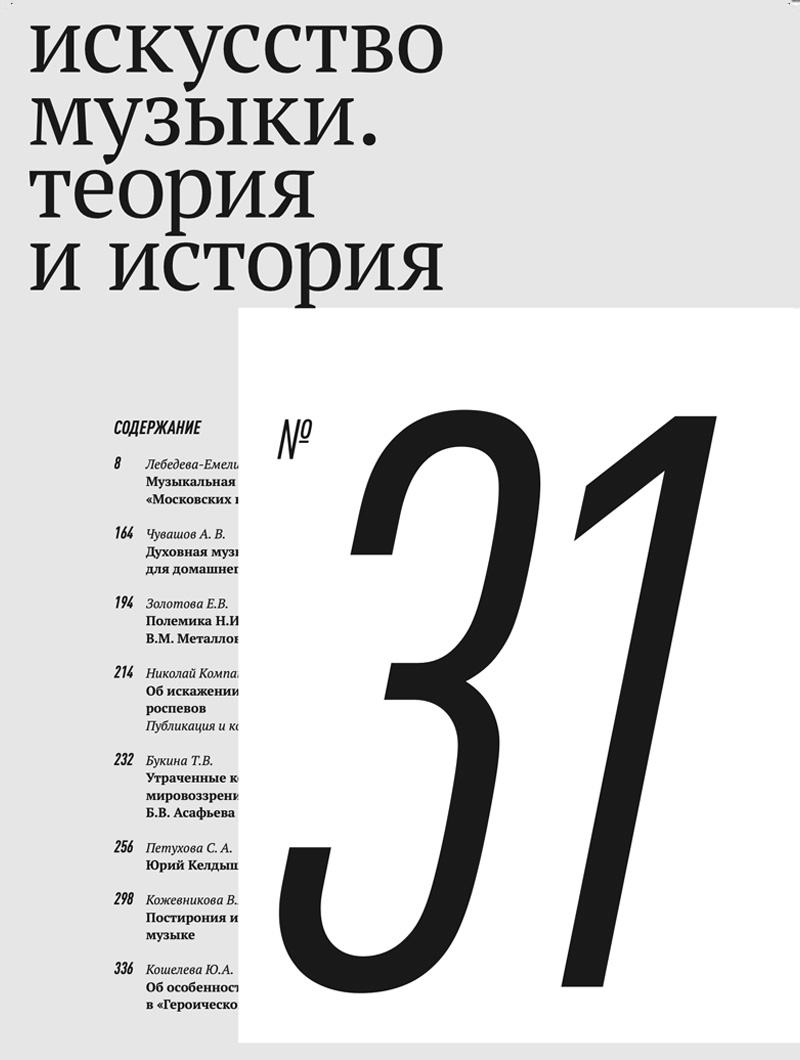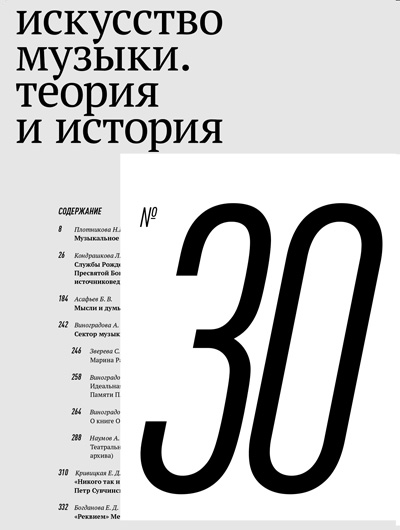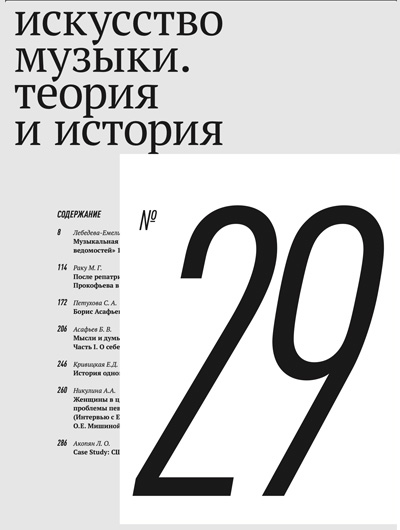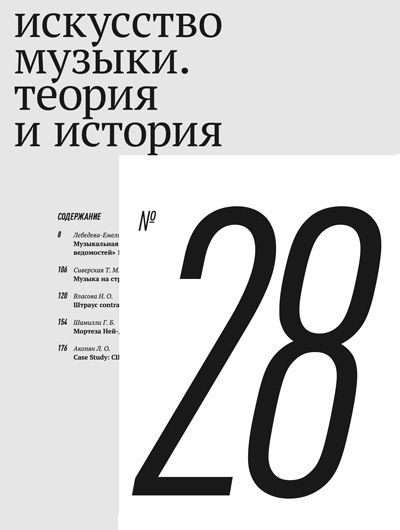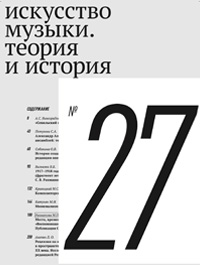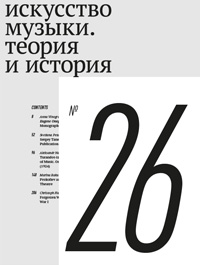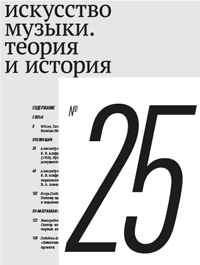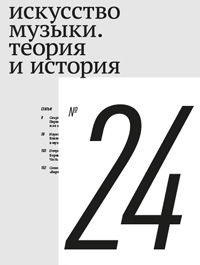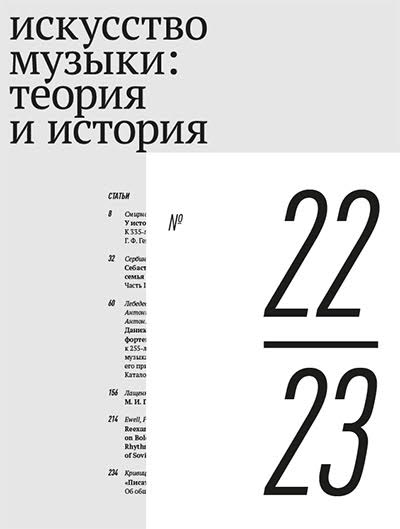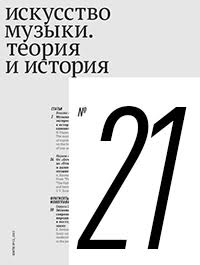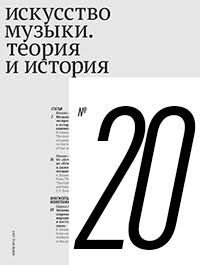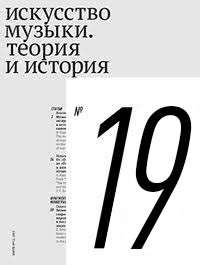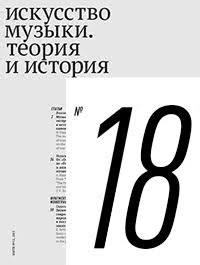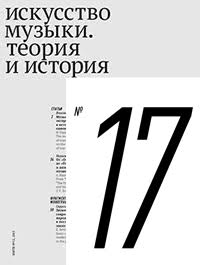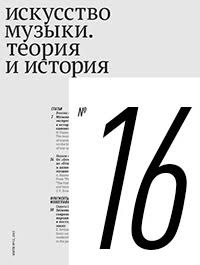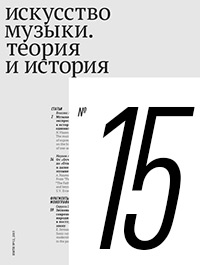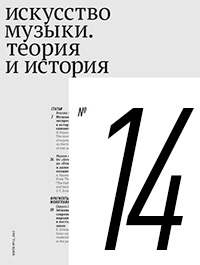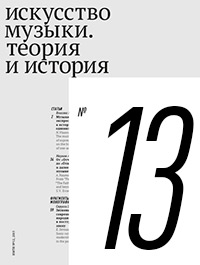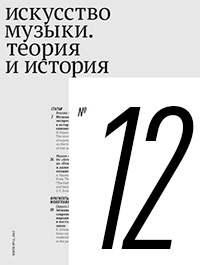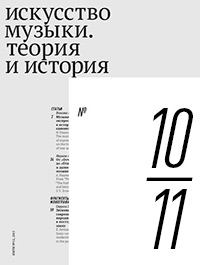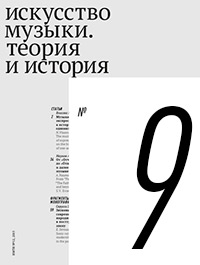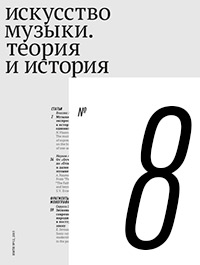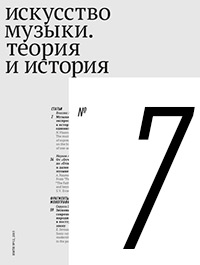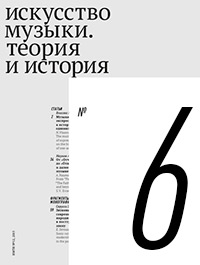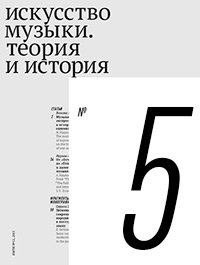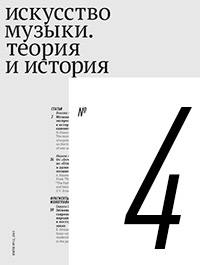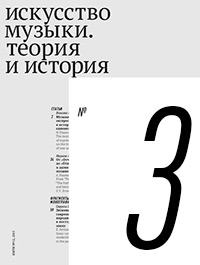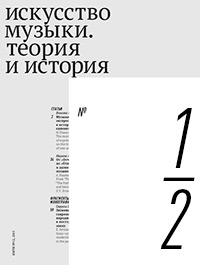2013 № 8
The eighth issue of the electronic journal Iskusstvo muzïki. Teoriya i istoriya (‘Art of Music. Theory and History’) contains articles and other items on diverse topics: from the Russian stage history of Auber’s Fenella – an opera which, though now forgotten, was once hugely popular – to the analysis of free jazz improvisations; from Tchaikovsky’s contacts with German ‘Wagnerists’ to Rostropovich’s influence on the contemporary cello repertoire; from the recently published diaries of Prokofiev’s second wife Mira Mendelson-Prokofieva to the 25th International Festival of Contemporary Music ‘Moscow Autumn’.
The article is based on the paper presented at the international conference ‘Russian–French Musical Dialogues’ (‘Keldïsh Readings’-2012, State Institute of Arts Studies). D.F.E. Auber’s opera La muette de Portici (also known as Fenella) is regarded in the context of literary, artistic, and theatrical interests of the Russian audiences of the 19th and 20th centuries. Presenting a number of facts previously disregarded in special literature, we have tried to assess in a new way the history of the opera’s stagings at the Imperial Theatres; to retrace the peculiarities of the work’s interpretation by the artists of German, Italian, and Russian companies; to evaluate the contribution of outstanding performers and theatre directors to the creation of the ‘Russian Fenella’
The article deals with Wagnerian influences on Tchaikovsky’s creative development. A special attention is paid to his contacts with Wagner’s most active champions and close associates, Hans von Bülow and Karl Klindworth (Tchaikovsky’s correspondence with the latter is published in Russian translation for the first time). The circumstances of Tchaikovsky’s contacts with the great Wagnerian conductor Hans Richter are elucidated. A question of special (and as yet unexplained) influence of Wagnerian context on Tchaikovsky’s evolution is put forward.
The author examines the history of Rostropovich’s creative contacts with three 20th century Russian composers, whose cello works laid the foundation for the extended repertoire dedicated to this artist. The account of the details of Rostropovich’s collaboration with the composers is based on musical and verbal sources, published and archive materials.
The questions of taking shape in a freely improvised music are discussed on the example of the album Fine by the AMM group. The form of this particular group improvisation is regarded as a sequence of interrelated stable and non-stable episodes, where the elements of stability can be represented by any more or less intense repetitive, similar, or prolonged elements and their combinations. Such episodes add up to traditional structures, confirming V. Bobrovsky’s idea about five fundamental logical functions of composition. In a group free improvisation these functions every time assume a specific, individual character.
The ‘Moscow Autumn’ is a large-scale multi-genre contemporary music festival. This year it celebrates the 35th anniversary of its foundation and the 20th anniversary of its international status. A highly prestigious forum of professional musical creation, the festival presents Russian and world premières of our contemporaries – composers from Moscow and other Russian cities, as well as from other countries, representing different generations, styles, schools, and movements.
Elena Krivtsova presents the collection of memoirs and diaries by M. A. Mendelson-Prokofieva – Prokofiev’s second wife, collaborator and biographer. The book, edited by E. Krivtsova, with her preface and comments, was published in 2012 by the publishing house ‘Kompozitor’ in collaboration with the M. I. Glinka All-Russian Museum of Musical Culture (ARMMC). This is the first full publication of these documents; the original manuscripts are kept in ARMMC.
